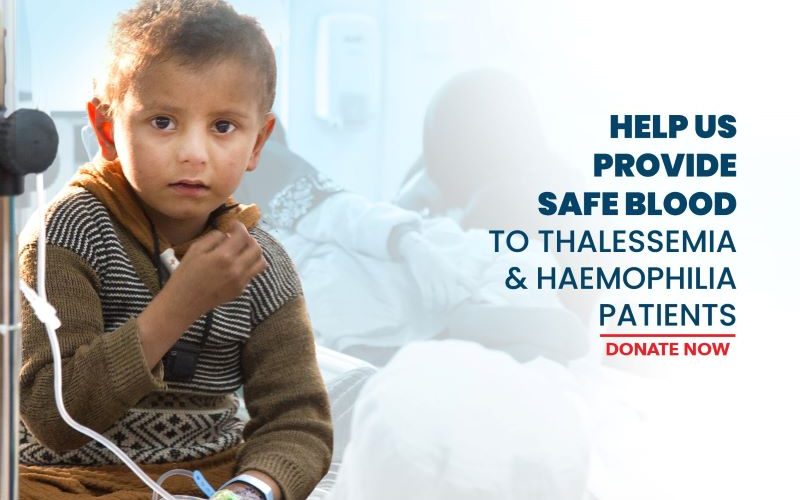YOU ARE A CHILD’S LIFELINE
The outbreak of the COVID-19 pandemic has put a severe strain on the blood supply as all large scale blood drives had to be cancelled. Blood inventories of thalassemia centers and other charity based blood banks are drying up. It poses a grave threat to the lives of thousands of children suffering from thalassemia and hemophilia as they are being turned away due to unavailability of blood products.
Thalassemia is a blood disorder in which the body makes an abnormal form of hemoglobin, which causes excessive destruction of red blood cells. It is a daunting disease since to keep Thalassemia patients healthy and alive, regular blood transfusions are needed.
Similarly, children suffering from hemophilia are also at a high risk. Hemophilia is a medical condition in which the ability of the blood to clot is severely reduced, causing the sufferer to bleed severely from even a slight injury. Recombinants factors and cryoprecipitate are the only two things that can stop bleeding in these patients and are essentially their lifeline.
In this critical situation, the Indus Hospital Blood Center has taken on-board 3 service partners, Patient Welfare Association, Munnu Bhai Thalassemia Center, Badin and Hemophilia Foundation-Pakistan to help them meet their blood supply need. Adhering to its vision of providing healthcare as a basic human right, Indus Hospital has provided these organizations with blood products worth PKR. 10 million, entirely free of cost without any replacement donors. Though, in order to sustain consistent supply to these service partners, the Indus Hospital Blood Center is currently struggling with lack of funds and is in urgent need of monetary donations. Therefore, we urge our supporters to come forward and generously donate to Indus Hospital to enable us to pr




